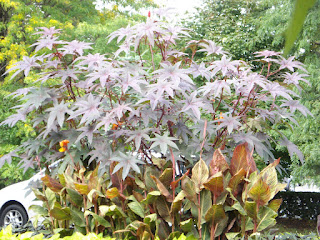There is another
debate raging over at the Pet Connection site, this time about declawing cats.
(A note here: on Yahoo Answers, every so often, someone gets all het up about "declawing" dogs. I find it indicative of the general level of knowledge of many "animal rights" people (mind you, most of them are teenagers, but still). They read "dewclaw" as "declaw", and proceed to try and change the world so no dogs are ever declawed again. How nice!! Anyhow, back to today's topic.)
I have mentioned
here before that I'm against the vast majority additional of "anti-cruelty" legislation, mainly because such legislation has a number of unintended consequences, doesn't address the issue, and has a slim chance of ever being used to prevent abuse of any animal, since most Animal Controls (at least the ones I know of) are understaffed and under-funded, and the court system doesn't seem to treat any but the most egregious cruelty cases seriously (case in point - Michel Vick didn't go to jail for animal abuse).
It seems many of the proponents in the current debate are British (or English, although I don't know how one can be English and not British, but I digress). Which makes me think of the hunting ban over there that worked
so well, that it's possibly in danger of being repealed.
We on the other side of the pond also have those that wish to ban hunting - both the mounted-fox-hunts kind of hunting, and the person-with-a-gun (or bow) kind.
Cuz you know, it's
mean. It's
nicer to let the poor little animals live their lives in peace. Yes ma'am, hunting and fishing is cruel and should be banned.
These same people, if one were to ask, would surely support environmental awareness and habitat preservation for those same poor little animals. But try to tell them that one of the BIGGEST supporters (in terms of cold hard cash, not just rhetoric) of habitat preservation was established, and continues to be supported, by
hunters. It makes sense when one thinks about it - no habitat, no animals. Most hunters and fishers I know are environmentalists as well, but aren't the tree-hugger types one generally associates with that term. They don't have time to protest and sign petitions - they are to busy actually spending time in the same habitats they are trying to preserve.
These same people, if one were to ask, would surely be against having those poor little animals die of car crashes, starvation or disease. And of course they'd be against having Fluffy and Fido end up as coyote food, right? But try telling them that's exactly what happens to deer and coyote populations (and probably to more animals, but those are the 2 I'm familiar with) in areas where hunting declines. Deer populations increase (good, right?), and more get killed by cars, and more starve to death as food resources become scarce (this is Animal Ecology 101). As deer populations increase, so do their predator populations - generally coyotes in many areas of North America. And coyotes are incredibly adaptable. When the deer population crashes, they happily turn to the
dog-and-cat buffet (FYI, the
Beaches area of Toronto is most definitely NOT suburban or rural - it's right between downtown and Lake Ontario.
Fort Erie is a town of ~30,000 right across the river from Buffalo - a bit more rural that Toronto, but a town none the less, and these attacks took place in a densely populated neighbourhood only a few block away from me. These are city coyotes we're talking about here, not their country cousins). As populations of animals increase, so do their diseases - like mange and rabies.
Like it or not, humans are part of the environment. We cannot be left out of the equations. Sure, it's nice to think about a "nature" where all animals are free from disease, starvation, and predation, but it just doesn't happen. So that's why I support hunting, and fishing, and even fox hunting (and please note, the fox is NOT killed in North American hunts). Even though I don't own a gun, fishing rod or fox hound.
Because, you know, I can separate logic and emotion, and use my little grey cells to try to understand what our world actually is, not what I wish it were.


 3. Everyone at the table, including the engineer, can identify the seeds used for the wedding decorations.
3. Everyone at the table, including the engineer, can identify the seeds used for the wedding decorations.





 We thought about going to the theater, but instead...
We thought about going to the theater, but instead...





